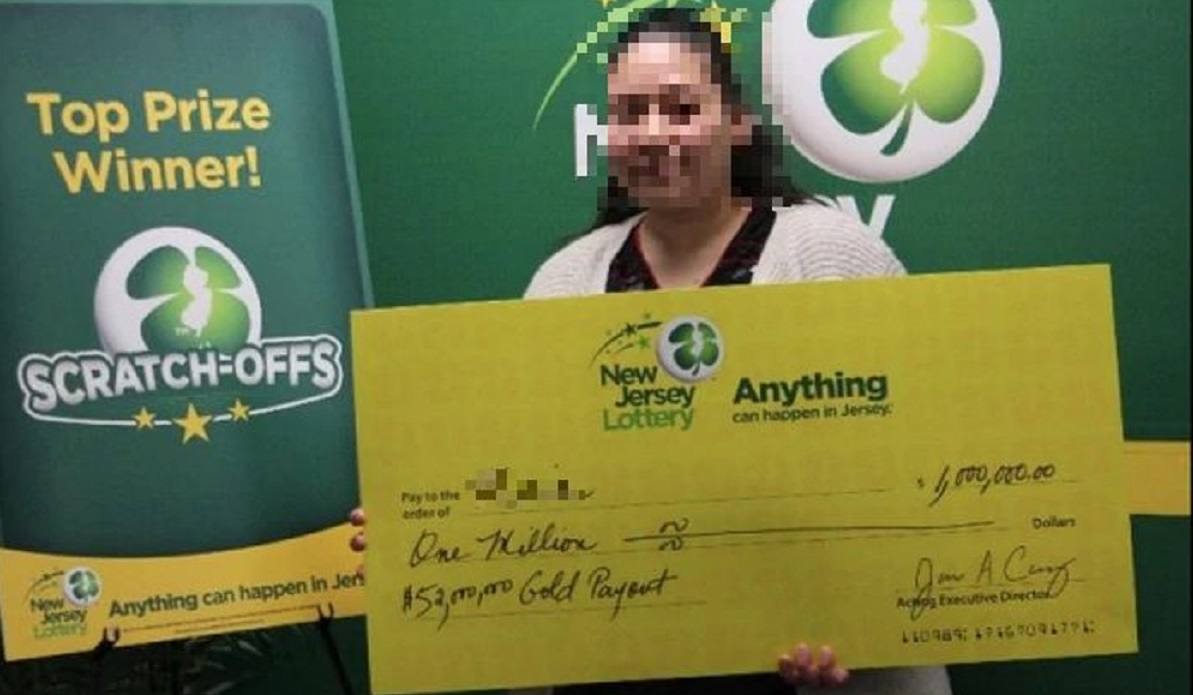New Jersey Lottery Winners Can Now Claim Jackpots Anonymously
Posted on: January 23, 2020, 07:30h.
Last updated on: January 23, 2020, 11:42h.
New Jersey Lottery winners will no longer be paraded in front of cameras while brandishing outsized novelty checks, thanks to a new law to protect the anonymity of players. That’s unless they happen to be eager for 15 minutes of fame, of course.

A bill signed into law Tuesday by Gov. Phil Murphy passed the state Senate and Assembly without a single dissenting vote earlier this month.
New Jersey joins just a handful of states that allow winners to choose privacy – although some states allow players to claim prizes anonymously through trusts. Many, though, have laws that dictate a winner’s name, hometown, and prize amount become public information.
The thinking is that this transparency promotes the perception of the integrity of the lottery. But it’s also good for business. The publicity generated by a big jackpot winner usually results in a spike in lottery sales for the subsequent draw.
In 2013, former New Jersey Gov. Chris Christie rejected a bill that would have given winners one year of anonymity on the grounds it would “undermine the transparency that provides taxpayers confidence in the integrity of the lottery and its games.”
Danger Money
But many winners are uncomfortable with becoming a cog in their state lottery’s relentless publicity machine, and feel dangerously exposed to potential scammers, freeloaders, and worse.
In 2006, Florida laborer Abraham Shakespeare won $31 million on the lottery, only to wind up dead under a concrete slab three years later, murdered by a woman who had befriended him for his money.
In 2016, Georgia man Craigory Burch Jnr. was killed during a targeted home invasion shortly after winning a $434,272 jackpot.
Jason Kurland, a New York-based “lottery lawyer,” told NorthJersey.com recently that the best advice for new lottery winners is to keep your mouth shut and call a lawyer.
“Don’t advertise it,” Kurland said. “Don’t tell too many people you won. If your name’s out there, everyone comes out. Not only family you haven’t spoken to in a long time, but charities. Mostly good. But some are bogus.”
Powerball Lawsuit
In 2018, the winner of what was then the eighth-biggest jackpot in US history — a $560 million Powerball prize — successfully sued the New Hampshire Lottery for the right to remain anonymous.
The judge in the case said he was in no doubt that the New Hampshire woman, known only as Jane Doe, would be subject to “an alarming amount of harassment, solicitation, and other unwanted communications” should her name be revealed. Her right to privacy “outweighed the public’s interest in the disclosure of her name,” he ruled.
While the identity of New Jersey winners will be protected from the press and the public, they won’t be flying completely under the radar.
State agencies will be able to share their details internally so they can remove things like outstanding child support payments, public assistance overpayments, and defaulted student loan payments before handing over the dough.
Related News Articles
Alabama Daily Fantasy Sports Bill Throttled to Death on Senate Floor
Lottoland Denounces Australia’s Bill to Ban Secondary Lotteries
Alabama Democratic Gubernatorial Challenger Embraces State Lottery
Mississippi Lottery Commences Operations, Only Five Non-Lottery States Remain
Most Popular
Las Vegas Overstated F1 Race’s Vegas Impact — Report
Vegas Strip Clubs Wrestle in Court Over Animal Names
Most Commented
-
End of the Line for Las Vegas Monorail
— April 5, 2024 — 90 Comments -
Mega Millions Reportedly Mulling Substantial Ticket Price Increase
— April 16, 2024 — 6 Comments -
Long Island Casino Opponents Love New York Licensing Delays
— March 27, 2024 — 5 Comments
















Last Comment ( 1 )
Should I call the lawyer I’ve already called left a message but didn’t hear back